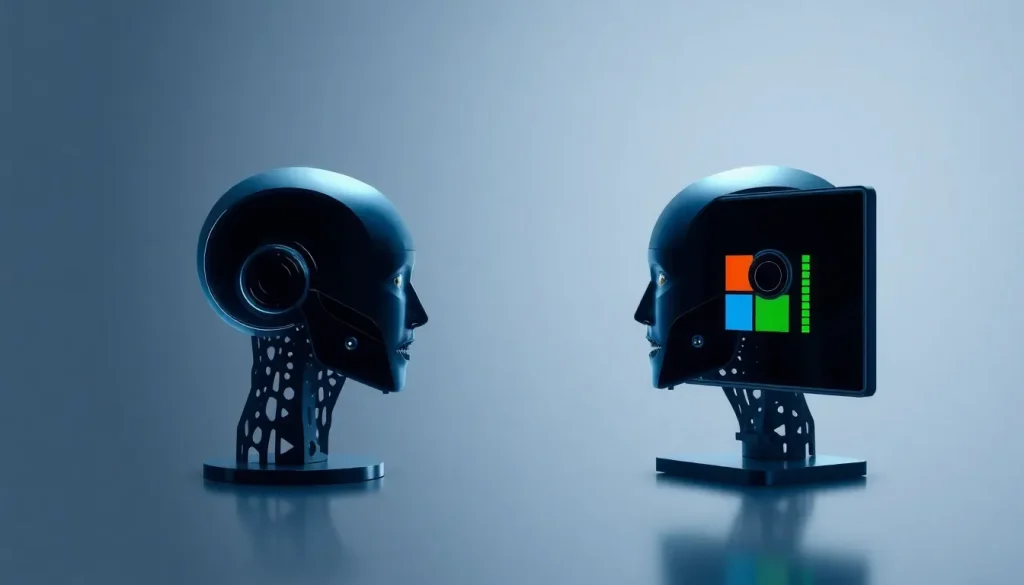OpenAI finalizes restructuring and secures future with Microsoft deal

OpenAI has completed its corporate restructuring and signed a new agreement with Microsoft, securing its future in the rapidly evolving landscape of artificial intelligence. This partnership marks a significant milestone for both companies, following several months of intense negotiations, amid various challenges and criticisms.
In a recent announcement on their official blog, OpenAI detailed the changes within its organizational structure. The nonprofit arm of the company is now known as OpenAI Foundation, while its for-profit division will be operating under the name OpenAI Group PBC, which is classified as a public benefit corporation.
As part of this restructuring, the OpenAI Foundation will hold a 26% stake in OpenAI Group PBC, estimated to be worth around $130 billion. According to Bret Taylor, the chair of the board at OpenAI, this restructuring positions the organization to become "one of the best-funded philanthropic entities in history."
Meanwhile, Microsoft will acquire a 27% stake in OpenAI Group PBC, with a valuation projected at $135 billion. The remaining 47% will be distributed among investors, employees, and former employees of the company, forming a significant financial foundation for future initiatives.
Looking ahead, the OpenAI Foundation plans to invest approximately $25 billion into two critical areas of AI development. These include creating technical solutions to enhance the resilience of artificial intelligence—aiming to "maximize benefits while minimizing risks," according to Taylor—and exploring AI applications in health and disease treatment.
OpenAI's transformative restructuring and its renewed partnership with Microsoft
OpenAI initiated its restructuring plan in 2024 following a pivotal funding round, which was crucial for its long-term vision. However, the process has not been without controversy and conflict. Elon Musk emerged as one of the most vocal critics, and there were also reservations from Microsoft about potentially losing investments made since 2019. Additionally, OpenAI had to reverse its original plan to leave the nonprofit arm without control over the for-profit subsidiary.
With relations seemingly at a breaking point, OpenAI and Microsoft engaged in negotiations to redefine the terms of their partnership. Microsoft has now given crucial approval for OpenAI's restructuring, allowing the creators of ChatGPT to secure their future direction.
The technology giant led by Satya Nadella will remain the primary shareholder of OpenAI Group PBC, with several renegotiated terms addressing prior grievances. This new agreement represents a strategic realignment in their collaboration.
Key highlights of the new agreement
One of the most significant changes under the new agreement is that OpenAI will no longer have the final say if it declares that it has achieved artificial general intelligence (AGI). From now on, any such declaration will require verification from an independent panel of experts. This clause is particularly crucial because it originally stipulated that Microsoft would lose access to OpenAI's technologies if the company claimed to have reached AGI.
In a move that secures their ongoing collaboration, Microsoft is now guaranteed access to OpenAI's AI models and products until 2032, even if AGI is reached before that timeline. If AGI does occur, appropriate safeguards will be implemented to manage the implications. Moreover, Microsoft reserves the right to pursue its own path towards achieving AGI, either independently or in collaboration with other partners.
Under the new terms, Microsoft will not have rights over consumer hardware developed by OpenAI. This is particularly relevant as OpenAI is currently collaborating with Jony Ive on various projects that could redefine consumer technology. Additionally, while OpenAI will continue to utilize Microsoft’s Azure computing power, it is also seeking to establish greater flexibility in developing new products in collaboration with third parties and has plans to provide its technology to the U.S. government for defense projects.
The implications of OpenAI's restructuring for the AI landscape
OpenAI's restructuring and partnership with Microsoft symbolize a pivotal shift in the artificial intelligence sector. The implications of this agreement extend beyond the two companies involved, potentially reshaping the future of AI development. Some key effects to consider include:
- Enhanced Collaboration: The renewed partnership may lead to more innovative AI solutions through combined resources and expertise.
- Increased Funding: With significant financial backing, OpenAI can expedite research and development, particularly in health-related AI applications.
- Market Influence: By securing a major stake in OpenAI, Microsoft strengthens its position in the competitive AI market.
- Ethical Oversight: The establishment of an independent panel for AGI declarations introduces a new layer of accountability, which may set industry standards for future developments.
- Broader Applications: OpenAI's commitment to providing AI technologies for various sectors, including defense, could lead to transformative changes across industries.
As the landscape of artificial intelligence continues to evolve, the collaboration between OpenAI and Microsoft stands as a testament to the potential for innovation and ethical considerations in this rapidly advancing field. The partnership not only redefines their operational frameworks but also sets the stage for future developments in AI technology.
Future prospects and challenges for OpenAI and Microsoft
While the restructuring and new agreement provide a solid foundation for OpenAI and Microsoft, several challenges remain on the horizon. Key considerations for the future include:
- Regulatory Scrutiny: As AI technologies become more pervasive, increased regulatory oversight is likely, necessitating compliance and adaptation.
- Technological Competition: OpenAI and Microsoft must remain vigilant against emerging competitors in the AI space, ensuring they maintain their innovative edge.
- Public Perception: Managing the public's trust and expectations regarding AI development will be crucial, particularly in sensitive applications like healthcare.
Ultimately, the success of this partnership will depend on how well both companies navigate the complexities of the AI landscape while fostering innovation and maintaining ethical standards.
For more insights into this groundbreaking partnership, check out this video that discusses the implications and future of AI:




Leave a Reply